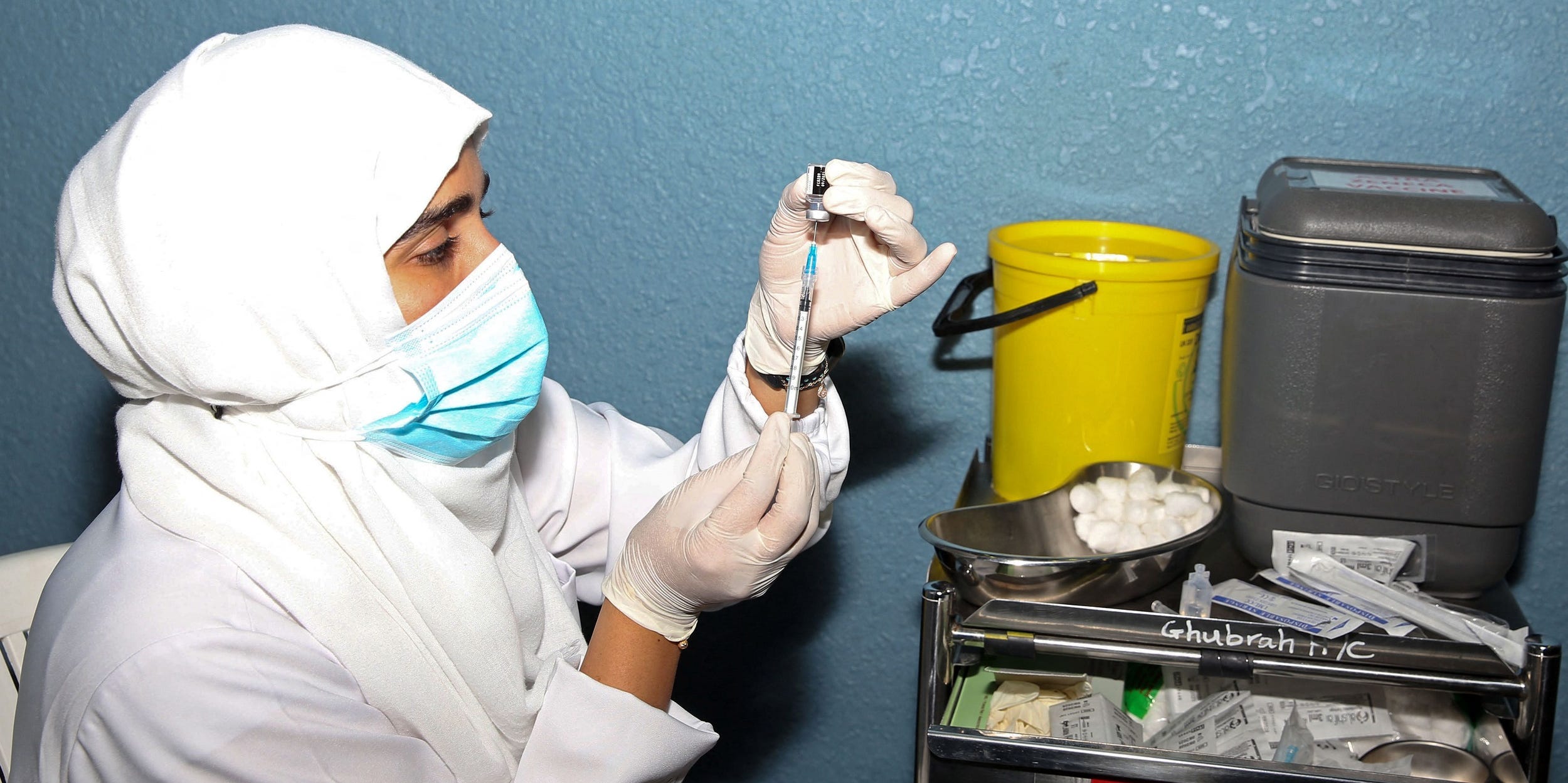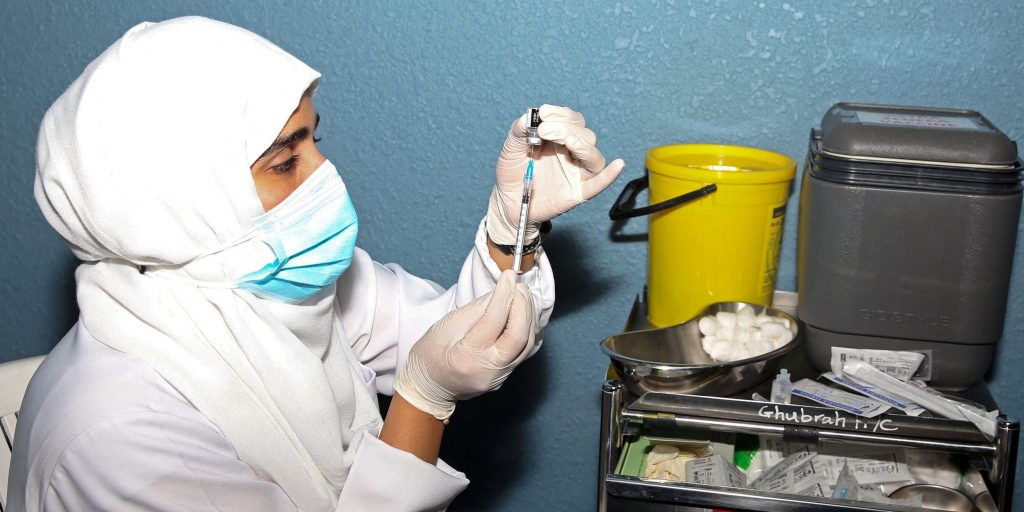
MOHAMMED MAHJOUB/AFP via Getty Images
- Mucorymycosis has been seen in patients with particularly severe cases of COVID-19.
- The fungal infection has a high mortality rate, requiring the removal of infected tissue.
- Doctors in Oman have encountered at least three COVID-19 patients with "black fungus," the AP said.
- See more stories on Insider's business page.
Doctors in Oman, a small nation on the Arabian Peninsula, have encountered at least three COVID-19 patients with "black fungus," the Associated Press reported Tuesday.
The fungal infection, known as mucorymycosis, can be fatal. The news comes as Oman faces a surge in coronavirus cases brought about, in part, by the fact that more than 90% of its population has not yet been vaccinated, according to the AP report.
According to the US Centers for Disease Control and Prevention, people with severe cases of COVID-19 "are particularly vulnerable to bacterial and fungal infections." The use of "high-dose corticosteroids and tocilizumab," a monoclonal antibody, can also predispose patients to infection from fungal spores.
Signs of infection include black lesions on the nose or inside the mouth, according to the CDC.
The problem of black fungus has been particularly acute in India, where several states have declared it an epidemic amid the spread of a coronavirus variant officially known as B.1.617, but more recently renamed Delta, that appears to be more contagious than the original. As Insider has reported, black fungus has a 50% mortality rate "and requires all infected tissues to be removed for patients to have a fighting chance."
Dit artikel is oorspronkelijk verschenen op z24.nl

